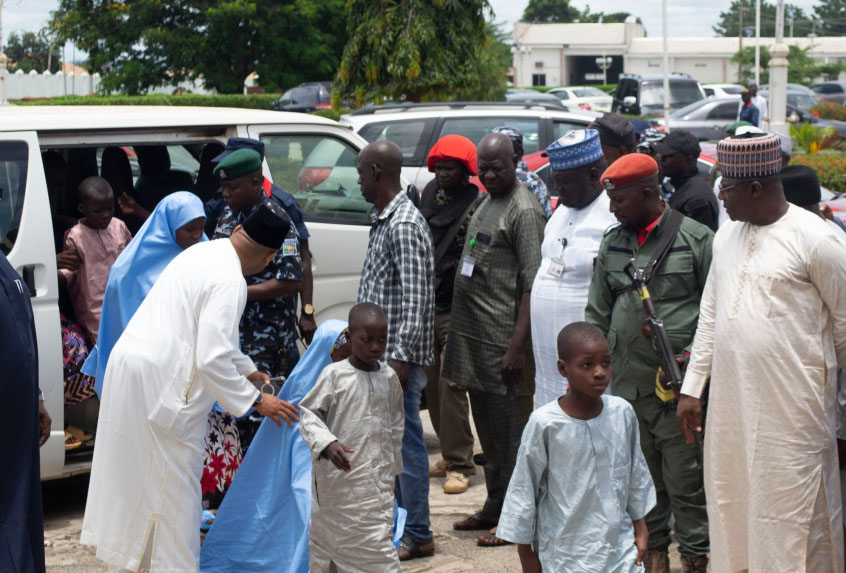- Thursday, 15th May, 2025

More students freed in Nigeria amid questions over ransom
Though authorities announced that one of the kidnapped children had died, 90 young pupils who had been kept captive for three months by gunmen in northern Nigeria were welcomed home with delight by their parents. A second batch of fifteen students kidnapped earlier this month has also been released, sparking optimism in the north of the country that other young hostages may be freed soon. A 54-year-old teacher whose two children, ages seven and seventeen, were released, said, the happiness can’t be defined. Children as young as four years old were among those kidnapped in Niger state. As of late Thursday, several of the inmates were needing medical treatment. There is no food, and there are mosquitos everywhere. It was the first time some of them had ventured out of their houses. More than one thousand Nigerian kids have been hijacked from their schools since December, and news of the child’s return was widely cheered. About two hundred people are still unaccounted for. Since the kidnappings, Nigerian officials have been under increased pressure to safeguard educational facilities in rural areas. A ransom payment was made to ensure the children’s release on Friday, but it was unclear if the ransom payment would lead to more kidnappings by the unidentified groups, which locals nickname bandits. In an interview published by The Associated Press on Friday he said, I’m pleased now. What he paid and whether or not government officials were engaged were not specified.
SalihuTanko Islamic School in Tegina was attacked by gunmen on motorbikes at the end of the month. Other toddlers were left behind since they were unable to keep up with the shooters as they rapidly carried the abducted into the woods in a hurry, leaving them behind. At first, the number of kidnapped students was put at 136, but that number has now been reduced to 91, including the youngster who died in captivity. Those freed were transferred to Minna, the state capital of Niger, where they received medical examinations and met with the governor. From white minibuses, scores of kindergarteners emerged, the girls wearing long blue hijabs known as chadors. The kidnappings in Niger state shocked people since the youngsters were so young. Parents may reconsider sending their children to school, which could have long-term consequences. To quote Governor Abubakar Sani Bello, the kidnapping has harmed the morale and trust of our citizens, as well as making parents think twice before sending their children go for education. If that means bringing them to justice, we’ll do whatever it takes.
There are hints that the attacks are becoming much more violent as they spread over the north. At least one university kidnapping took place earlier this year, and gunmen wanted significant amounts of money for their release. Initially, they killed five pupils in order to force the parents of other students to raise the money, and then they liberated 14 of those students. Another 15 students were brought over to authorities on Friday, according to Zamfara state police spokesperson, eleven days after they had been abducted from the School of Agriculture and Livestock Science in Nigeria’s turbulent northwestern. Zamfara state officials are now looking after the students and will shortly reunite them with their families, officials added.


